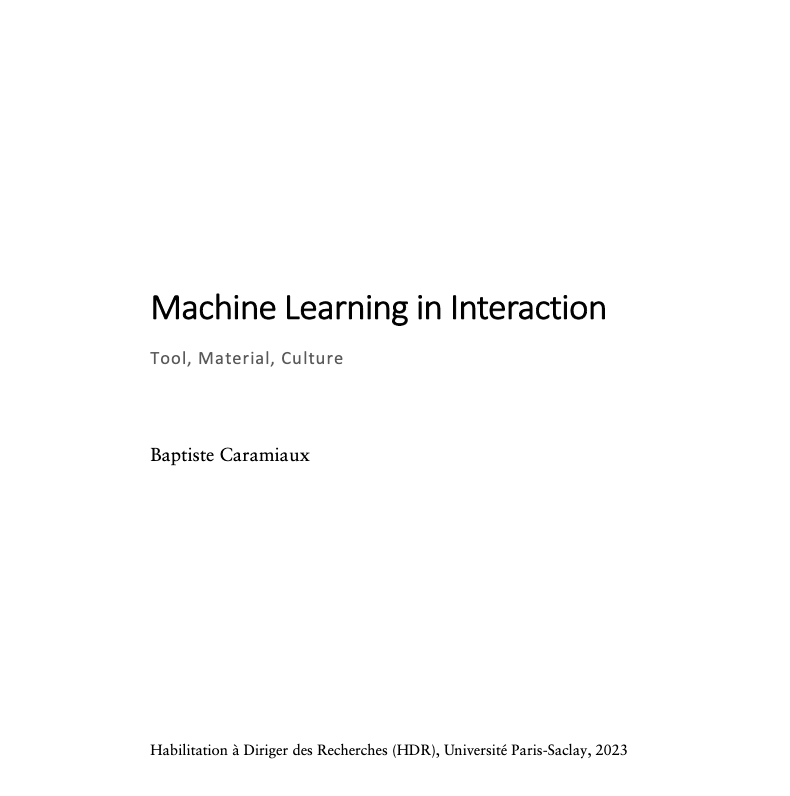In 15 May 2023, Baptiste Caramiaux defended his habilitation thesis. This was an opportunity to look back over 10 years of research and to reflect on new topics addressed by the ARCOL project.
Summary
In this habilitation I emphasise the importance of a perspective on machine learning (and artificial intelligence) technologies situated in interactions with people and contexts of development and use. Through my research over the past ten years, in collaboration with my students, post-docs, and colleagues, I articulate three perspectives: machine learning as a tool, material, and culture. First, I show that machine learning can be seen as a tool acting on objects situated in their context. This view has several limitations, which are highlighted in creative applications. Secondly, I show that machine learning has materiality, useful for system design. This materiality makes the technology dynamic and expressive, highlighting its cultural dimension developed in the third part. As a culture, I show that this technology is often communicated in a normative way, reducing the possibilities of discourse and interaction. And I propose examples of alternative discourses on technology from artistic works. In conclusion, I discuss the interrelationships between these three perspectives and how they can be linked in a human-computer interaction research programme.
Jury
Susanne Bødker, Professor, Aarhus University
Elisa Giaccardi, Professor, Delft University of Technology
Myriam Lewkowicz, Professeure, Université de Troyes
Alex Taylor, Reader, City University of London
Rebecca Fiebrink, Professor, University of the Arts London
Jean-Daniel Fekete, Directeur de Recherche, Inria
